Celebrate Citrus with Lemon CurdWe are approaching the end of citrus season (basically, the winter months) and when ripe, juicy, tart citrus fruits abound, then lemon curd is a must! Though I try to keep my food as local as possible, I do like to splurge on some super-premium citrus during the cold months to boost my mood (and taste buds!), carrying me through until local fruit is available. I try not to feel guilty about knowing how far that fruit traveled from California to get here, but I suppose perfection is not the goal. When local fresh fruit is nowhere to be found except in the freezer, you can find a flavorful pick-me-up from citrus, starting the countdown to local produce (rhubarb here we come!) Be sure to use organic lemons if at all possible. Lemons can be heavily sprayed with pesticides, and in recipes like this that use the zest, it is important to choose organic lemons to avoid those chemicals. What is Lemon Curd?So what is lemon curd? Curd is a British spread, much like a custard, made with eggs, butter, sugar (honey in this case) and citrus juice. Lemon is the most traditional citrus used, but you could substitute lime, tangerine, or grapefruit if you like. As odd as the name sounds, it is one seriously delicious treat, and citrus season is prime time to make it. Lemon curd is bright and buttery--the perfect blend of tart and sweet. I use my lemon curd on sourdough toast or pancakes, as well as dolloped on soaked oatmeal, homemade yogurt, used as a tart filling, or eaten as-is as a healthy fat-packed sweet snack. I'm sure you will find your favorite use for your lemon curd, too. A Nutrient-Dense Sweet TreatLemon curd is sweet, to be sure, but it is also full of nutrients! Lemons are a great source of vitamin C, great for the immune system and collagen production, and what better way to pack some extra lemon into your diet? This recipe is also heavy on the eggs and butter, offering vitamins A and K2, healthy fats, choline and cholesterol, all essential nutrients to the body. Now that our chickens have started laying eggs regularly again with the return of the light, this recipe is a great way to use up our bounty of eggs. My version is sweetened with local honey to add enzymes and antioxidants, in addition to a more complex flavor than white sugar, also making it GAPS-friendly. You could use maple syrup in place of honey if desired, especially if you would rather not heat your honey. Maple is another natural sweetener option that adds minerals and nutrients, along with its sweetness, and I love using it often since we make our own! Either sweetener is fine here, but honey is the only GAPS-legal sweetener; if you are on the low FODMAP diet, use maple instead. Honey Lemon Curd
Makes 1 pint Ingredients: 2 whole organic, pastured eggs 2 organic, pastured egg yolks* 1/2 cup lemon juice--the juice of about 4 lemons 2 Tbs lemon zest 1/3 cup local honey--can substitute real maple syrup if desired 8 Tbs pastured butter Pinch of sea salt Directions: 1. In a small bowl, whisk together the whole eggs and egg yolks. 2. In a medium saucepan (use a non-reactive material, such as glass or stainless steel pan), combine the lemon juice, lemon zest, honey, and salt. 3. Cut the butter into cubes and add to the pan. 4. Cook the butter, honey, and lemon over medium heat, stirring pretty regularly to prevent sticking. When the mixture starts to warm, gradually add the eggs, a little at a time, whisking as you add them. This will temper the eggs and prevent them from curdling too soon. 5. When the mixture starts to bubble, keep an eye on the texture. Whisk intermittently, but be careful not to overmix. The mixture will start to thicken as the eggs cook and curdle, and the curd is ready when it is approximately the texture of pudding, cooking for about 5-8 minutes. 6. Remove from the heat and let the curd cool for a few minutes, and then strain it through a fine mesh strainer to remove pieces of egg and lemon zest to create a smooth texture. Alternately, you could put the cooled curd into a blender to smooth it out, while leaving the zest in it. 7. Transfer to a pint-sized glass jar. Cover and refrigerate several hours or overnight, until cooled and firmed. This will keep 1-2 weeks in the fridge. *Don't throw those egg whites out! The extra egg whites can go into omelets or scrambled eggs, or to make honey-sweetened coconut macaroons or meringue.
0 Comments
Probiotics Are Not One-Size-Fits-AllProbiotic supplements and foods (i.e., fermented foods) can be key in helping improve the microbiome, leading to better gut function and overall better health. However, one common mistake I often see in those looking to improve their gut health is not knowing how to select the right probiotic. It can be hard to know which one to buy, leading many people will grab whatever probiotic is cheap or seems "good enough," expecting this to be a magic bullet for gut health. Unfortunately, not all probiotics are created equal, both in quality and ingredients, and it is important to know how to pick the right probiotic for your own unique body so you can maximize their benefits. These are not one-size-fits all supplements and I want to let you in on how to select the right probiotic for you. As Always, Start with FoodBefore diving into probiotic supplements, I want to address probiotics in the diet. As a food-focused dietitian, I like to emphasize food first (over supplements) to help support a healthy microbiome--this would include probiotic-rich fermented foods like sauerkraut, kim chi, yogurt, kefir, kvass, and kombucha, which contribute beneficial bacteria and yeasts to the body along with enzymes, prebiotic fibers and post-biotic digestion support. Consuming probiotic foods as well as fiber-rich foods like vegetables, fruits, beans, nuts and whole grains, can help to create a diverse and robust microbiome, without having to add a supplement. For many healthy people, starting with a nutrient-dense diet, choosing organic foods whenever possible, avoiding processed sugars, flours and oils can often be a good start to creating a healthy microbiome. Additionally, getting plenty of exercise and sleep, addressing stress and spending time in nature while avoiding chemicals in personal care products, cosmetics, cleaning supplies and more, can all support the microbiome in addition to a good diet. If you can adopt these diet and lifestyle principles as a starting off point, you will likely see an improvement in your gut health and overall wellbeing. While using foods to support the microbiome is great for generally healthy people, in certain situations, adding therapeutic doses of probiotic supplements can be beneficial. Some people with sensitive digestive systems don't tolerate fermented foods, such those with FODMAP or histamine intolerances, and supplements can help add beneficial microbes to the body in place of these foods. Who Can Benefit From Probiotic Supplements?Since having a robust, diverse microbiome is one of the most important foundations of good health--from gut health, to immune function, and even mood and mental health--probiotic supplements can be beneficial in many situations, and can be an important part of a healing protocol. Beneficial bacteria, yeasts and other microbes in the body (our microbiota) have numerous jobs, and we are only truly beginning to understand the myriad ways they promote good health. Beneficial bacteria help maintain the integrity of the gut lining (helping to prevent gut permeability, aka "leaky gut"), create healthy mucous membranes, facilitate the digestion and absorption of food, promote regularity of the bowels, help create digestive enzymes, and promote bile flow. Along with these gut and digestive functions, commensal bacteria also promote respiratory and dental health, protect the body from pathogens, play a role in immune function, help with weight management and blood sugar control, help produce neurotransmitters (serotonin, dopamine, GABA, etc.) to support mental health, decrease the likelihood of allergies and food intolerances, and even take part in the production of some nutrients like vitamins B12 and K2, and short-chain fatty acids like butyrate. So, if you have digestive ailments or other health issues that may be improved with a stronger, more diverse microbiome, then adding in probiotic foods or supplements might be beneficial for you. What to Look for in a Probiotic SupplementIt can be confusing and overwhelming to select a probiotic supplement, and you want to be sure you are getting what you are paying for. My primary advice is to do as much research as you can before selecting and buying your product, as your average "grocery store" probiotic may not provide the benefits you desire or expect. Here are some of the important things to consider when selecting a probiotic: Species and Strain Specificity First, I will start with a brief intro about the taxonomy of probiotics. The genus refers to the general "family" of the probiotic, such as lactobacillus, Bifidobacterium, or bacillus. The species is a more specific description of the bacteria (what most people are familiar with in probiotic names), such as lactobacillus rhamnoses. The most specific descriptor of a microbe is the strain (such as Saccharomyces boulardii I-745), which is the subtype of the species and gives the best indication of how this might benefit the user. When choosing a probiotic supplement, I believe the most important thing to look for is picking the right species and strains of bacteria (or yeast) tailored to your specific health needs. This is important if you are looking to address specific symptoms or health conditions, as different species and strains have been shown to benefit different situations, while others have no research to support their use in different situations. Getting specific about species and strains can also help to not worsen symptoms in some cases as well. For example, some people who have IBS or SIBO (small intestinal bacterial overgrowth) do not do well with some strains, and may even have symptoms worsened with some strain, while needing to use other strains in order to improve their symptoms. This is a key reason why probiotics are not one-size-fits-all! Each species and, more importantly, strain of beneficial microbes has a different role in the body, so using the right microbe to help you is essential. Always carefully read the label to see which species and strains are included in the supplement. Do your research to determine what these strains have been shown to benefit certain conditions(or not)--the more information a label gives on species and strains it contains, the better. If the strain is not listed on the label, reach out to the manufacturer to gather more information and make the most informed decision you can. I tend to recommend different probiotic strains for different health conditions, as some species and strains have been clinically proven to benefit certain conditions, but not for others. Doing your research and working with a practitioner before taking (and paying for!) a supplement ensures you get the right microbes, or combination of microbes, to actually help you reach your health goals. Diversity In addition to specific strains and species, I also typically recommend supplements with multiple strains in it, helping to promote the most diversity possible and attempt to confer the most benefit to digestive function and other health outcomes. While the most strains in a supplement may not necessarily mean it will provide more benefit, I do like to see some variety and diversity of (evidence-based) strains in a probiotic supplement. There is much debate about whether probiotic supplements actually colonize the gut or not, but we do know that they provide benefit to digestive function, immune function, and other health markers, so adding many types of beneficial microbes is important, even if they only provide these benefits transiently. Guaranteed Potency and Clinical Results Good companies have transparency, guarantee high potency in their products, and back up their products with clinically-proven results. Many products will include a guarantee of potency, so look for this on the label to be sure that as many of the microbes are still potent and viable when you buy it off the shelf as possible. Seeing "clinically tested" strains on the label and brands with third-party testing and certification is also a good sign as well. Again, if you do not see these types of information on the labels, reach out to the company to inquire further. If they can give you this information, great, but if not, move on to another company that provides more transparency. CFU (Colony Forming Units) Many people primarily focus on CFU (the number of microbes present in the supplement) when picking a probiotic. Our culture tends to fixate on "the more, the better," but this may not apply to probiotic supplementation; a super-high CFU count is not typically something I emphasize, as I feel quality and strain-specificity are more important than quantity. I don't see a lot of evidence for higher CFU counts having more benefit to the gut, so getting hung up on this marker may be a waste of time. Look for a supplement with a CFU in the several billions, but focus your probiotic search much more closely on strains and quality. Additives and "Other" Ingredients When you read the label of your probiotic supplement, look for additives or allergens in the capsules that may not work for your body, especially if you have sensitivities or dietary restrictions. Some strains are grown using soy or dairy, and may need to be avoided for those with allergies. Many probiotic manufacturers are adding other ingredients to amend the probiotic part of the supplement, such as prebiotic fibers, enzymes, or herbs. While these may be beneficial for some, others may not react well to added ingredients (such as prebiotics), so read your labels to look for these "extras." Also, fillers that are commonly used in capsules may cause GI distress or other reactions, so look at the inactive ingredients before using supplements as well. As a side note, I do want to caution us to avoid thinking of probiotics in the same way that modern, allopathic medicine views treatments; the goal of these foods and supplements is to provide us beneficial microbes in the gut and improve digestive function, immune function and more. So, while I like to use strains and species that have been proven in studies to benefit different health conditions, they are not "cures" and adding these strains is not the only step in creating better health, rather, are one of many layers of improving health. That is where working with a practitioner comes in! Working With a Provider to Select Your Probiotic and Improve Gut HealthWhile being empowered to improve our own health is an important principle, there are times where working with a provider can be a part of that self-empowered picture. I always recommend working with a healthcare practitioner (or even a team of them) to find out which probiotic supplements and dietary changes may help support your gut health or other health condition. One of the reasons for this is unintended side effects. As mentioned above, some don't tolerate probiotic supplements, whether at high doses or with certain strains, which is part of the reason I don't recommend adding a probiotic supplement across the board. Some people need to avoid these supplements altogether, such as those with compromised immune systems or with certain digestive conditions, which is a big reason why working with a practitioner is better than assuming a certain supplement will be beneficial or appropriate. Another reason is that a practitioner can help take the guess-work out of your treatment plan. They can order tests, such as stool testing, to determine where there are imbalances and what supplements may be therapeutic . A practitioner can help with your research into clinical studies on strains for various conditions, as well as address overgrowth and other factors contributing to GI symptoms. Lastly, working with a practitioner helps to view the microbiome and the body as a whole, working with you on a comprehensive plan--remember, probiotics are not magic bullets! We must support the body with a good diet and healthy lifestyle practices, treat overgrowth of unwanted microbes and address inflammation and gut permeability to help create a healthy gut environment and diverse microbiome. We also must ask the question of why and how the gut was allowed to become imbalanced in the first place. Using the extra support from supplements can be beneficial-but they are not a cure-all for better gut health and certainly must be a part of a comprehensive healing protocol. If you have a certain digestive or other health conditions you feel may be improved with adding in probiotics, do your own research, talk to a provider to find the right species and strains for your body (or to see if a probiotic is even right for you) and to help improve your microbiome through diet and lifestyle. Want Help on Your Healing Journey?If you feel you may need some help in selecting the right probiotic for you and could use some guidance in your gut-healing journey, then please reach out!
Go to my website, www.laurapoerd.com, to set up a FREE 15-minute consult or book a package to get started on healing your gut. Good Health Requires More Than Just Good Food!While diet and nutrition are essential to good health, these are only part of the total picture of wellbeing. Other areas that must be addressed when looking at gut health and overall physical health include movement and exercise, stress and sleep, connection and community, as well as our toxic load. There are certainly a huge number of toxins that can harm health, such as pesticides, herbicides, pharmaceutical drugs, vaccines, and more, but the damage done to our body from modernized life accumulating in our toxic load does not always come in the form of chemicals; sometimes, it comes from technology and devices and, for many, goes unseen. However, unseen does not mean unaffected. There are electronic and radiation additions to our toxic load as well, coming from non-native EMF's (man-made electromagnetic frequencies) and radiofrequency radiation (such as Wi-Fi). Here, I would like to dig into their effects on our bodies, specifically looking at how modern technology damages our health and microbiome. With my primary focus being on gut health and the microbiome, I cannot overlook this relationship between technology and our health. With more people (including myself) working from home now, and the recent rollout of more 5G networks, many of us are on the computer and using technology more than ever before, being exposed to more electromagnetic "pollution" than ever, so it is an important time to address this issue. While many technological advances can be convenient and can certainly make it easier to earn a living during these strange times, the increased use of technology does not come without consequences—but there are ways to interface with these technologies to decrease their negative impact on our health. I will cover some of the health effects of wireless technology and EMF's, but more importantly, I want to give some practical solutions for ways to improve your relationship with technology, both for health, privacy and happiness. Some of my solutions and tips may seem extreme or darn near impossible but please believe that they are totally doable--I know, because I do them myself! The Electromagnetic LoadThe overarching theme of all my suggestions regarding protecting your health from harmful technology is this: remove anything wireless or “smart” from the home and, if you can help it, elsewhere in your life. I’m talking Wi-Fi, smart phones, Bluetooth headphones, and so much more. The primary reason for this elimination is to decrease your exposure to non-native electronic and magnetic frequencies created through industrialization, often referred to as EMF's, "dirty" electricity (high frequency voltage transients), and radiofrequency radiation emitted by wireless devices and other electronic technologies, as these unequivocally cause damage the body. Some refer to the amount of EMF’s and other harmful radiation our bodies must deal with as the "electromagnetic load," equated to the "toxic load" we bear from other environmental toxins we accumulate in this industrialized society. Our goal must be to decrease our electromagnetic load in order to protect our health. While some people are sensitive to EMF's (they are often diagnosed with EMS, or electromagnetic sensitivity) and immediately feel their negative health effects, this is not true for everyone--and we should look to those with EMS as our canaries in the coal mine, showing us that these "invisible" pollutants are very real and have an effect on us. EMF’s are unavoidable, especially in public spaces as nearly every place imaginable has Wi-Fi now, but also because all electricity has some impact on us (even the sun and our own bodies emit native EMF’s--we are electrical beings, after all!). So, while we may not be able to completely avoid these technologies, we must choose practices and products that emit less radiation and fewer EMF's, decreasing the burden on our bodies—especially with the knowledge that we are only beginning to understand how harmful these so-called innovations can be. Why Should You Care About EMF's? How Do They Affect Our Health?You cannot successfully carry out your healing journey--including healing your gut--without considering how these frequencies and radiation may be damaging your body. As one paper from 2016 noted: “Studies, empirical observations, and patient reports clearly indicate interactions between EMF exposure and health problems. Individual susceptibility and environmental factors are frequently neglected. New wireless technologies and applications have been introduced without any certainty about their health effects, raising new challenges for medicine and society.” This may seem fringe-y and far-fetched, or unimportant and even theoretical. Luckily, I have lots of science to back up what I am saying and am not basing all of my recommendations on feelings (though my intuition tells me these technologies are harmful, just to back up all that nice research). These effects discussed below offer a bit of background on the why of the lifestyle changes I suggest implementing, but I am only scratching the surface here—click the links provided for more information and dig deeper into the sources related to EMF and radiofrequency health effects. Some of the noted effects of non-native EMF’s (from man-made technologies) include:
Clearly, these EMF's disrupt the growth of microbes, increase oxidation, create stress in the body, interfere with our nervous system, and can potentially inhibit liver function--all leading me to the conclusion that they must be addressed in the pursuit of gut health and improving the microbiome. One researcher has noted: “Cultures have shown beneficial bacteria grows more slowly in the presence of electromagnetic fields, says Rau, allowing pathological organisms to dominate.” Think of how this could impact the beneficial microbes necessary for a healthy gut and robust microbiome, especially with how inundated we are with these technologies! Practical Steps to Decrease EMF Radiation Exposure: Un-Cut the Wires!I am not here to just report on problems, but offer solutions--that is the true way forward! If you want to try to incorporate decreased technology practices in your life, start to take some of these suggested steps below and begin to peel away the layers of modern technology. While we can’t remove all devices from our life, it is time to seek out alternatives and new habits that allow us to move toward less entanglement and more connection. As you lower your electromagnetic load, you will see a benefit to not only to your physical health, but to mental wellbeing and connections as well. Disclaimer: this will not be easy. Certainly, there are sacrifices to be made, routines and habits to adjust, but putting even some of these steps into place is worth it. Just like the sacrifices and effort required for eating healthy and exercising, these changes will require some discipline, too. These are just steps we have taken at our home, but finding what is right for you will be your own journey--enjoy it and be proud of every step you take!
Other Factors to Support Decreasing Dependence on TechHealth outcomes are certainly my main motivation to remove wireless and Bluetooth devices from your life, but other reasons also exist. These devices drastically decrease your privacy, as they are constantly collecting transmitting your data, while also tracking your every move. They also inhibit your ability to ground and connect with the people and the tangible world around you. Some measures we have used to increase our privacy online include: Turn off location services, microphones and cameras (or even cover the camera lens) on your computers/devices when not using them; ditch Google and use Smart Page or Duck Duck Go for search engines; switch to Brave Brower over Chrome or Edge for your web browser; use Linux as an operating system over Microsoft; and my husband insists on using ProtonMail over Gmail for email purposes, but I am still working on transitioning to this myself. Removal of unnecessary devices also helps re-train you to communicate and interact more for real: make phone calls, play games with your family, do more physical activity (can you get up to turn on the light, or do you really need a smart lightbulb??), and get out more in nature, without so much assistance from and distraction by technology. I am not necessarily against all technology—hello, I am typing this on a computer right now--but I encourage us to view it as a tool and not as a measure of status or progress that must continue to expand into more areas of our lives and become more advanced. I like to try and compartmentalize it as best I can: use it for work when necessary and for entertainment in moderation, choosing devices and appliances that decrease my electromagnetic load. Want to Learn More?For more information (like, way more) on the history and effects of these technologies on our health, I encourage you to read the book The Invisible Rainbow by Arthur Firstenberg. He goes in-depth into the damages these technologies do to our bodies, including our microbiome and immune system, our mental health and so much more.
The Weston A. Price Foundation has a great series of podcasts diving into EMF information and effects, which you can check out here: https://www.westonaprice.org/podcast-category/emfs-5g/ There are also several great blog posts and articles on these sites: Children's Health Defense Fund, EMF Empowerment, and EMF Academy if you want to learn more about news, products, and steps to take to protect your health. The goal here is not to be perfection or piety; the goal I am proposing is simply the commitment to better health through decreasing our electromagnetic load, in addition to nutrition, movement and more. The process of untangling from wireless technology may be slow I, but is necessary to support gut health and overall wellbeing—and our household is proof that it can be done! Start with one step, a few or even all of them, doing what you can to gradually move away from incessant technology use and bombardment with harmful radiation. What steps have you and your family taken to help decrease your EMF load? Let me know in the comments! |
Brine & Broth
I am a gut health-focused nutritionist and online health coach based in Southwest Wisconsin. My recipes and philosophies center around traditional, nutrient-dense foods that support robust gut health. Archives
May 2022
Categories |

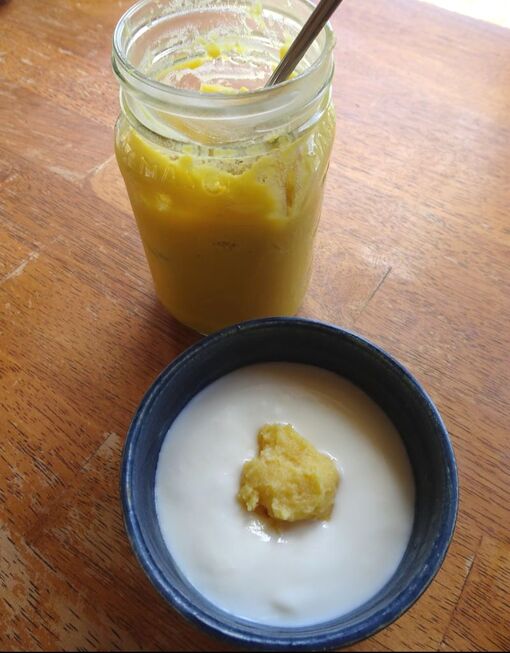
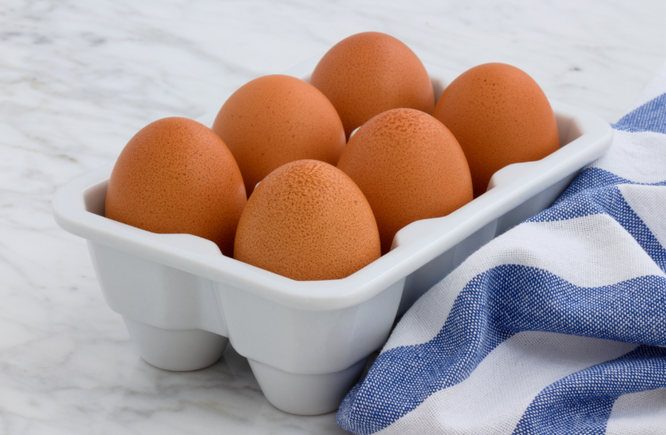

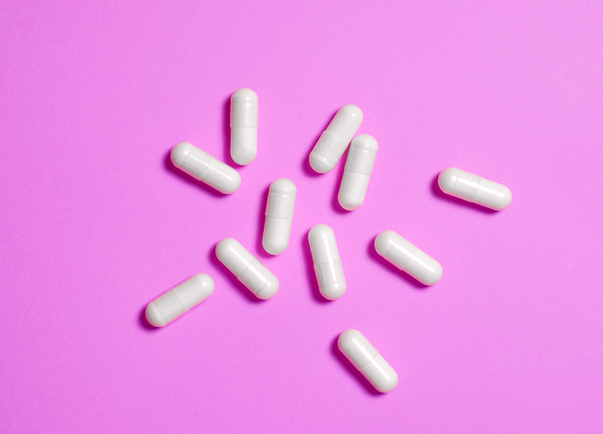
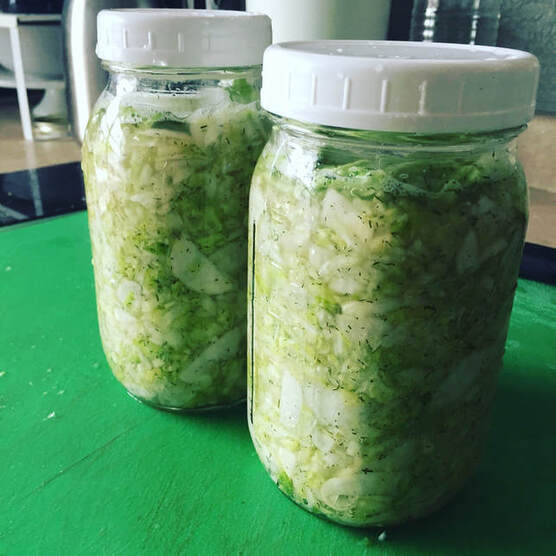


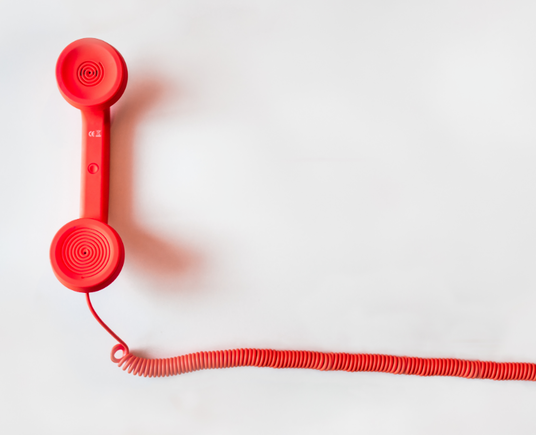
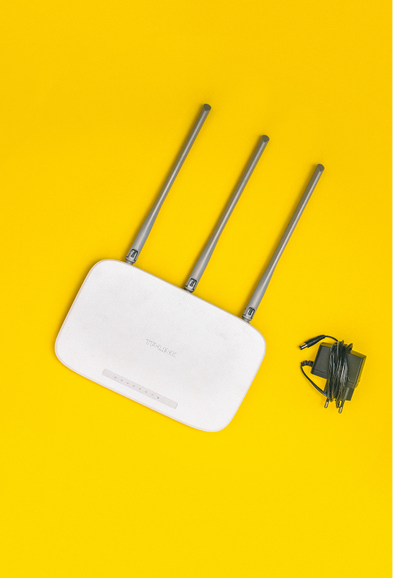





 RSS Feed
RSS Feed
